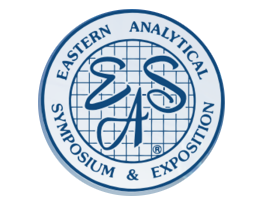Tuesday, November 14; 8:30am – 5:00pm
COURSE DESCRIPTION
In this course we will provide a survey of important theoretical and practical issues to consider when developing two-dimensional liquid chromatography methods for (bio)pharmaceutical analysis. We will begin with a discussion of the potential advantages of 2D methods over 1D-LC separations, and show examples of 2D methods for solving real analytical problems in (bio)pharmaceutical analysis. We will discuss heartcutting, comprehensive, and hybrid modes of 2D separation, and both small and large molecule analyses. We will provide an overview of current understanding of factors that affect 2D separation performance, including the impacts of undersampling, orthogonality of separation mechanisms, and detection sensitivity. Finally, we will discuss current approaches to quantitation and visualization of 2D data, and review the characteristics of commercially available instrumentation for 2D separations.
WHO SHOULD ATTEND
Scientists interesting in applying two-dimensional liquid chromatography to analytical problems in pharmaceutical and biopharmaceutical analysis. Participants with all levels of experience with 2D-LC are welcome, ranging from no experience to intermediate experience. A basic working knowledge of liquid chromatography will be assumed.
TOPICS
1. Theoretical Advantages of 2D-LC Over 1D-LC
* Overview of heartcutting, comprehensive, and hybrid 2D separations
* Review of advantages of 2D for small and large molecule separations
2. Theoretical Considerations for Implementation of 2D-LC
* Impact of first dimension undersampling on 2D separation performance
* Separation orthogonality and separation mechanisms
* Impact of method development decisions on detection sensitivity
* Optimization of performance
3. Practical Factors for Implementation of 2D-LC
* Compatibility of first and second dimension separations
* Optimization of instrument configuration for low level detection
* Influence of pumping system design and operation on 2D separation speed and performance
4. Applications
* Small molecule
* Large molecule
5. Data Analysis in 2D-LC
* Approaches to quantitation and visualization of 2D chromatograms
* Overview of advanced chemometric treatment of 2D data
6. Survey of Commercially Available Instruments and Components for 2D-LC
7. Questions & Answers
ABOUT THE INSTRUCTORS
Dr. Dwight Stoll is Professor of Chemistry at Gustavus Adolphus College in St. Peter, MN. He has authored or co-authored more than 90 peer-reviewed publications and five book chapters in separation science and speaks internationally on the topic. His book on 2D-LC was published earlier this year (ISBN: 978-1-00-309055-7). He has also written the monthly “LC Troubleshooting” column for LCGC Magazine since 2017. His primary research focus is on the development of two-dimensional liquid chromatography (2D-LC) for both targeted and untargeted analyses. Within this area he has made contributions on many aspects of the technique including stationary phase characterization, biopharmaceutical analysis, new 2D-LC methodologies and instrumentation, and fundamental aspects including re-equilibration in gradient elution liquid chromatography and analyte focusing. He has taught several short courses on 2D-LC in recent years at venues including Pittcon and the international HPLC20XX series. He is the 2011 recipient of LCGC’s Emerging Leader in Chromatography Award, the 2015 recipient of the American Chemical Society Division of Analytical Chemistry Award for Young Investigators in Separation Science, and in 2017 he received the Georges Guiochon Faculty Fellowship.
Dwight is the author or co-author of 49 peer-reviewed publications and two book chapters in the area of separation science, and is a named co-inventor on four patents. He has authored or co-authored over 95 presentations at local, national, and international meetings, and has instructed numerous short courses in two-dimensional liquid chromatography. In 2009 he was the winner of the John B. Phillips Award for contributions to multidimensional gas chromatography, and in 2011 he was the recipient of LCGC’s Emerging Leader in Chromatography Award. In 2012 he was elected to the editorial advisory board of LCGC Magazine, the leading trade publication for the separation science community. In 2014 he was named to The Analytical Scientist’s list of ‘Top 40 Under 40’ analytical scientists, and in 2015 he received the American Chemical Society Division of Analytical Chemistry Award for Young Investigators in Separation Science. In 2016 he received the Palmer Award from the Minnesota Chromatography Forum, and the Gustavus Faculty Scholarly Achievement Award. In 2017 he will receive the Eastern Analytical Young Investigator Award, and the Georges Guiochon Faculty Fellowship.

